In today’s economy, most businesses understand and accept the reality that they will have a percentage of customers with late or no-pay accounts. As a result, business owners are burdened with the additional responsibility of managing collections on those past due delinquencies. Since there is no remedy to make all customers pay on time, one of the most important actions you can take as a business owner is to understand debt collection laws on a federal, state, and local level. The following information is designed to briefly explain the laws and regulations you must adhere to be in compliance when attempting to collect a debt from a customer or vendor.
Usury Laws
These laws are designed to regulate charging customers or vendors more than the maximum allowable amount. The amounts covered under usury laws can vary from state to state. In any case, usury laws are relatively difficult to navigate because of the vast number of exceptions, such as with the Truth-in-Lending Act.
The Truth-in-Lending Act is federal legislation designed to control the maximum amount of interest you can charge on overdue accounts and balances. However, state usury laws can be stricter than the federal Truth-in-Lending legislation. As a result, it’s imperative for you to understand the individual state’s requirements as well.
Other Considerations
In addition to usury laws, your individual circumstances may cause other laws to impact your debt collection efforts. One common example is dealing with consumers who have filed for bankruptcy. In this case, debt collectors and creditors are prohibited from continuing with collection actions until the bankruptcy has been settled.
Debt Collection Agencies
A growing number of businesses are turning to collection agencies to outsource their overdue or collections accounts. However, before you choose a collection agency, it is imperative to ensure the agency adheres to all debt collection laws and consumer protection laws. The Consumer Financial Protection Bureau and the Federal Trade Commission (FTC) are the agencies responsible for enforcing debt collection laws, such laws the Fair Debt Collection Practices Act (FDCPA).
When you hire a debt collection agency, they are responsible for complying with all debt collection laws. It is also important to understand, however, that their actions affect your reputation as much or more than your own. If you hire a debt collection agency that doesn’t adhere to debt collection laws, you could suffer staggering blows to your business reputation, which will affect future business.
Debt Collection Fees
In any case, if you collect the debt yourself, it’s understandable and common practice to charge the delinquent account additional fees. However, you should be very careful to pay attention to the state and federal debt collection laws about charging fees on outstanding debt.
As a general rule of thumb, you can charge service fees, collection costs, interest or other expenses related to the original debt. When you do charge these types of fees, you must express the amounts in a contract. In addition, the customer must have agreed to the terms of the agreement. However, any of the additional charges listed on the contract must be in compliance with state and federal laws.
Debt Collection Law Violation Penalties
If you are collecting your own debt, the importance of understanding and adhering to the federal and state debt collection laws is unparalleled. Even if you are unaware of these laws, you will be held responsible for any violations, which could result in any of the following staunch debt collection law penalties.
Monetary Penalties
As the biggest deterrent for violating debt collection laws, you could be penalized large amounts of money for causing the debtor physical and emotional stress. If you violate the debt collection laws by calling the debtor at work, you could have to pay penalties for disrupting the debtor’s workplace productivity. At the same time, you could also be responsible for paying for the disruption of a debtor’s co-workers productivity. In the event your debt collection law violation requires lawyers and attorneys, you could be held responsible for the lawyer fees of the debtor. Even after the consumer collects penalties related to lost wages, disruption from work productivity, and emotional stress, you could still be penalized statutory damages up to $1,000.
Injunction
In addition to the monetary penalties, the court could also penalize you with injunctions. The most common injunctions are for the debt collector to stop calling and sending letters to the debtor. While injunctions may not have the monetary significance of financial penalties, injunctions basically prohibit you from contacting a debtor, which means you may never recover your unpaid accounts.
Third Party Lawsuits
If your debt collection efforts have burdened others, like family members, neighbors, or the receptionist at a debtor’s workplace, these persons could sue you under debt collection laws.






